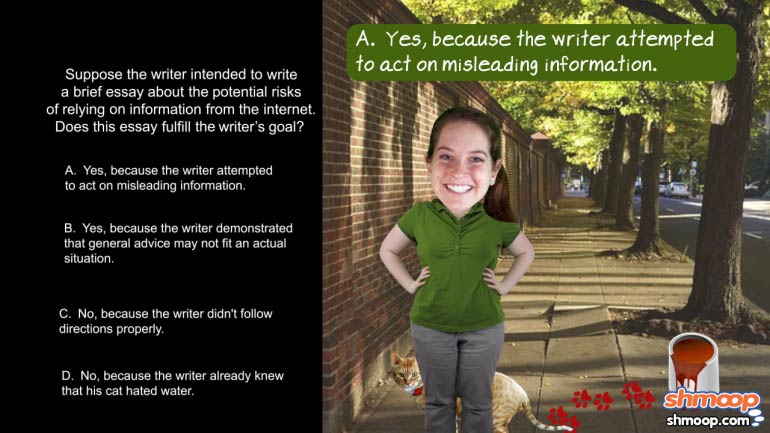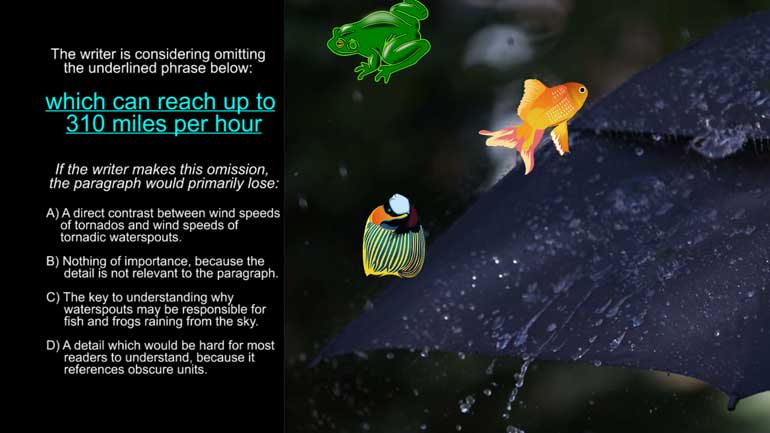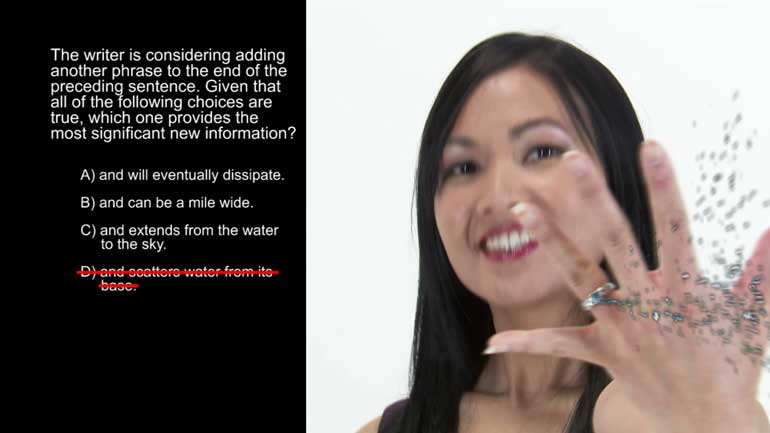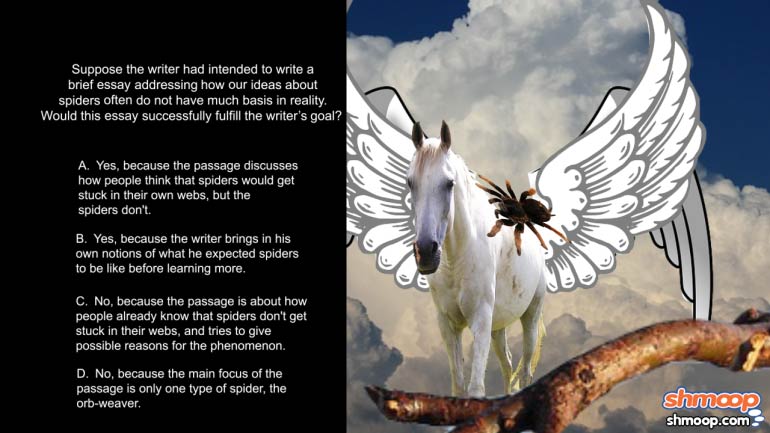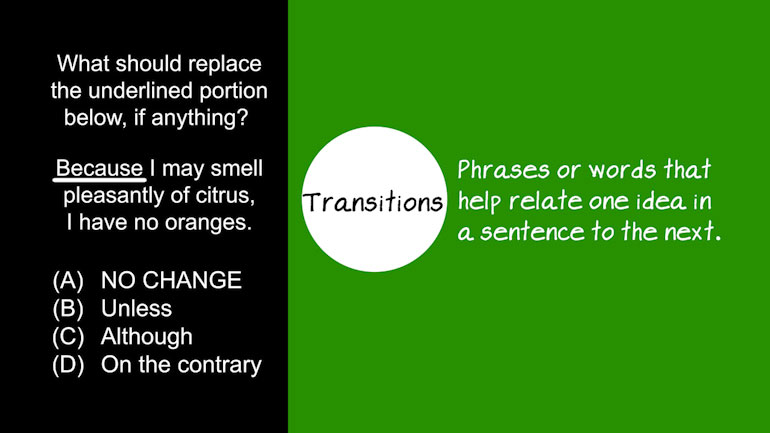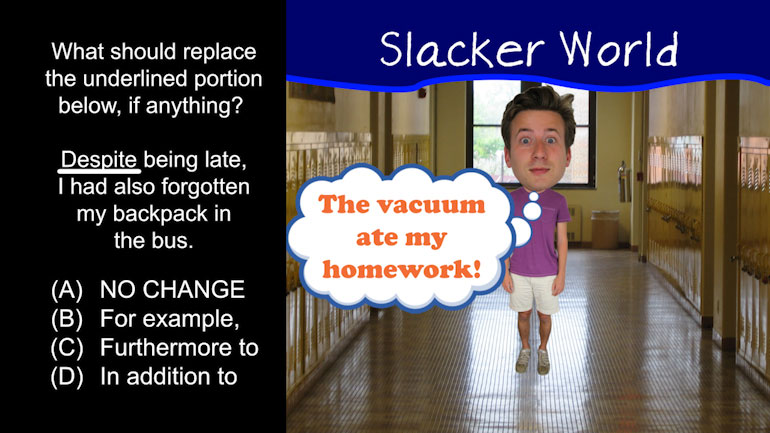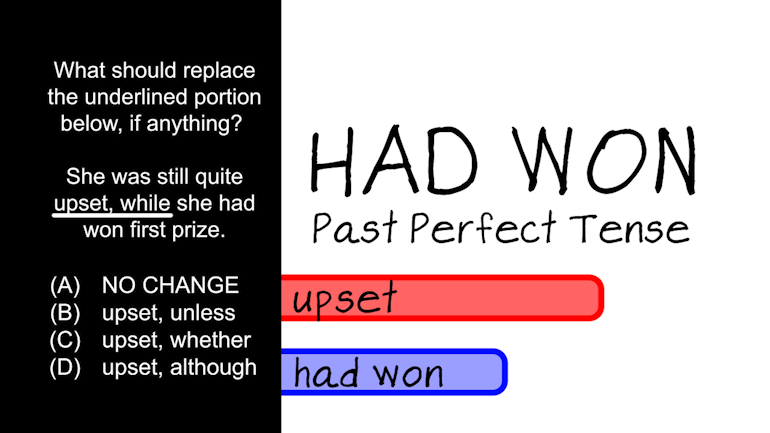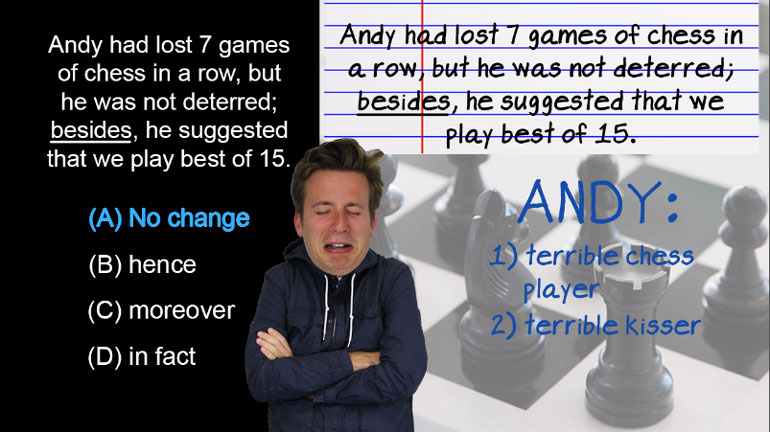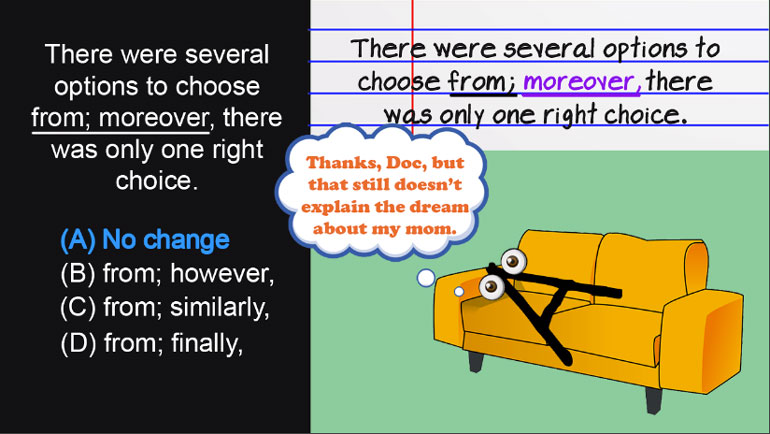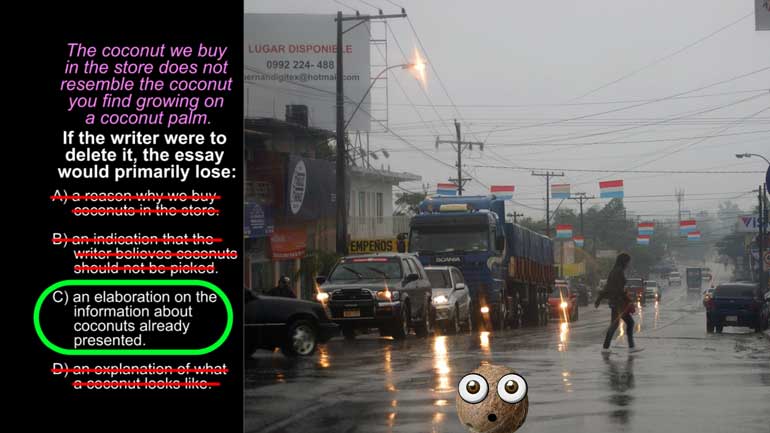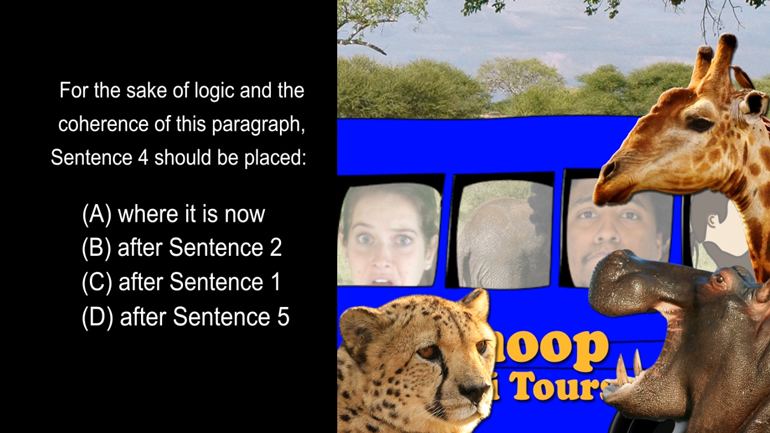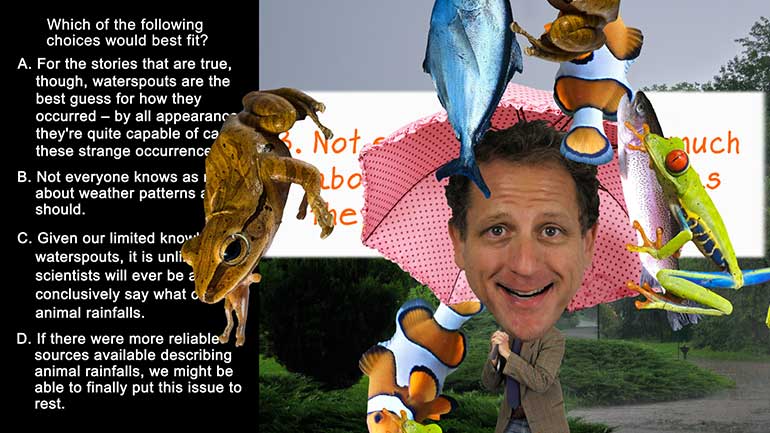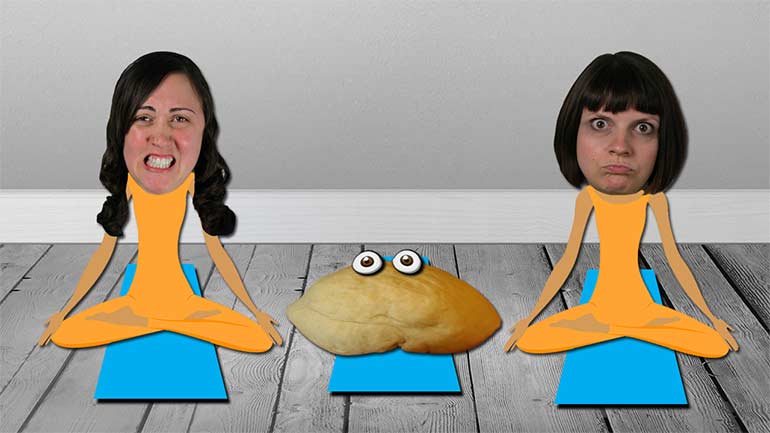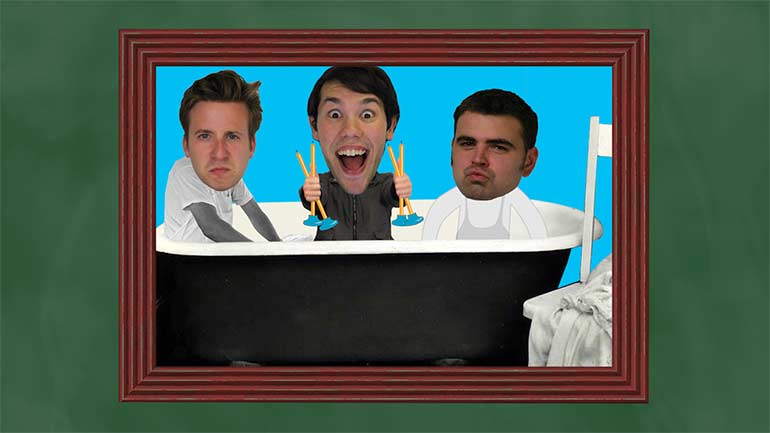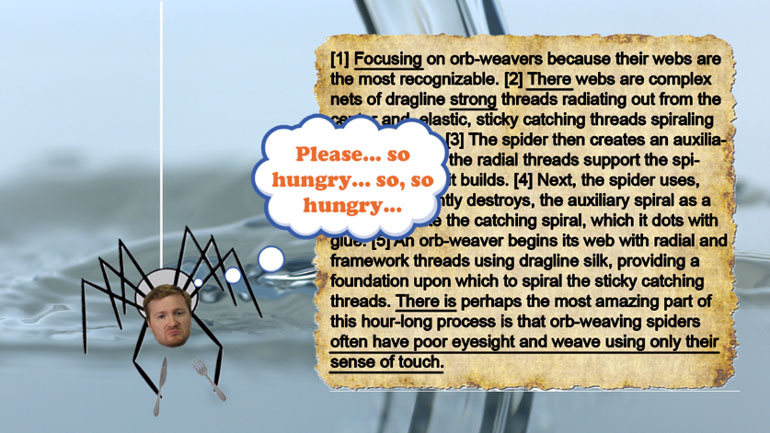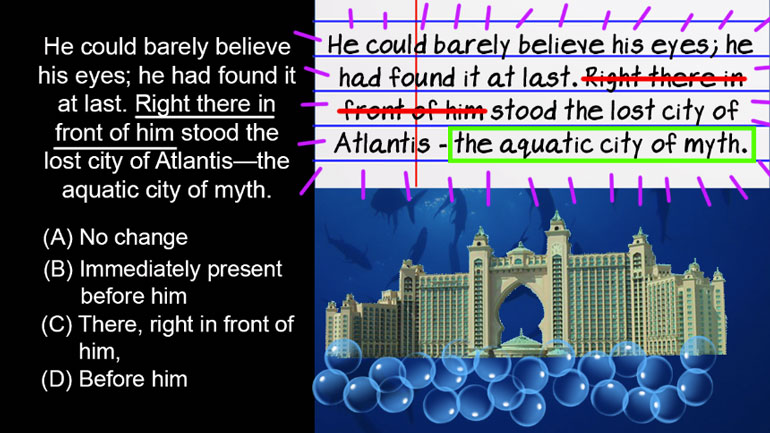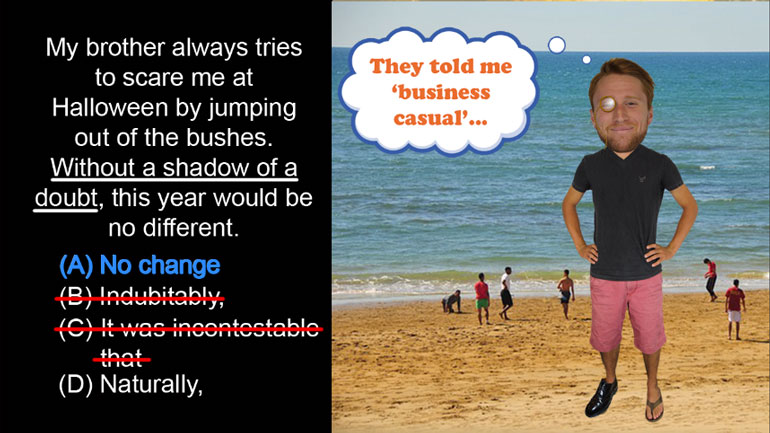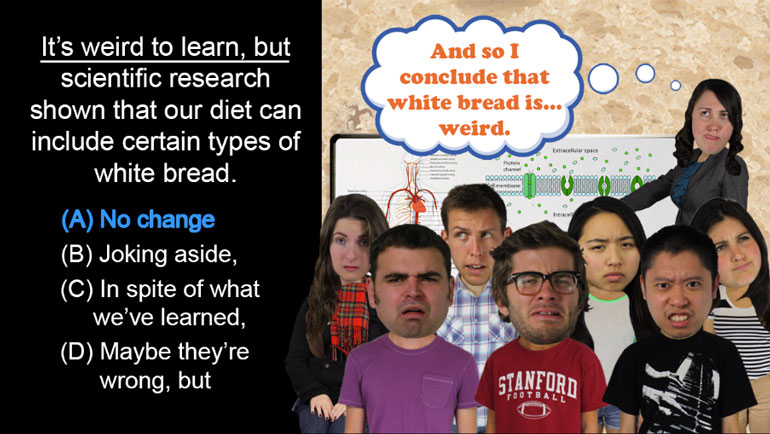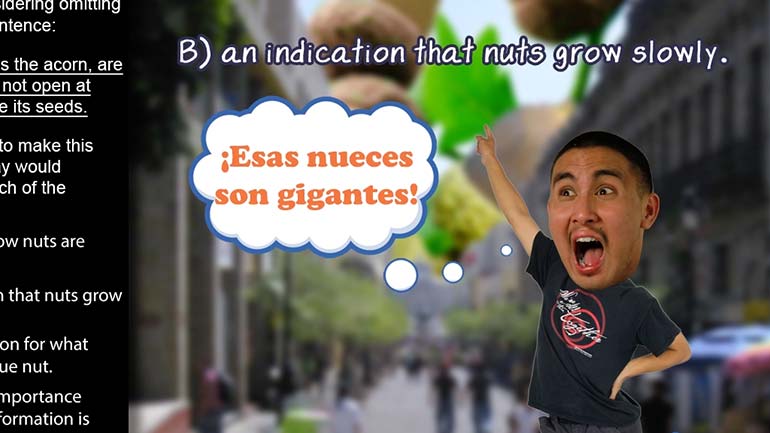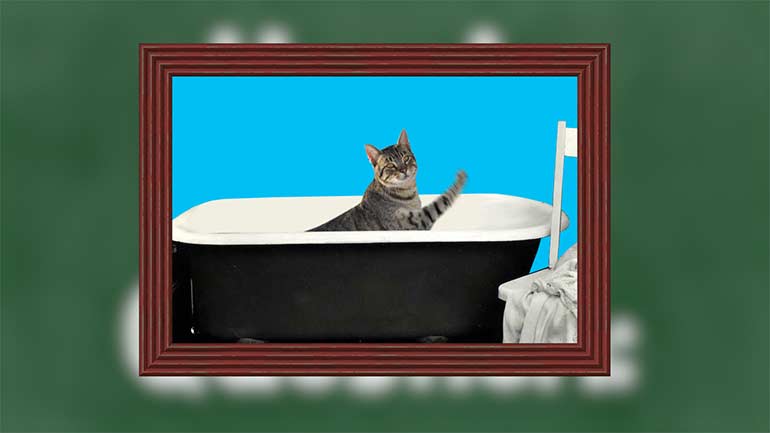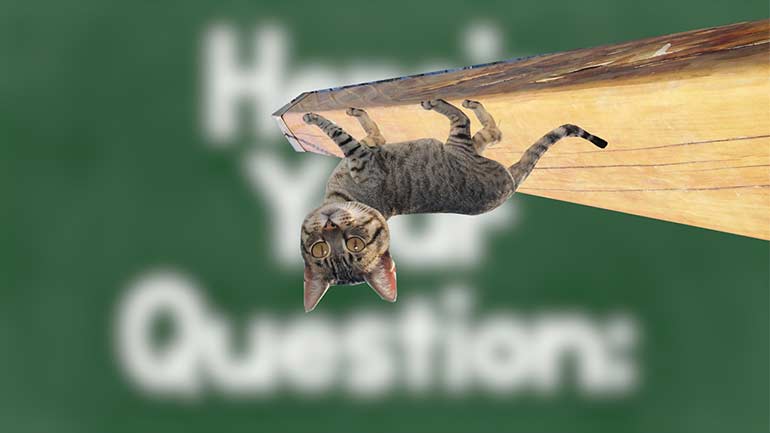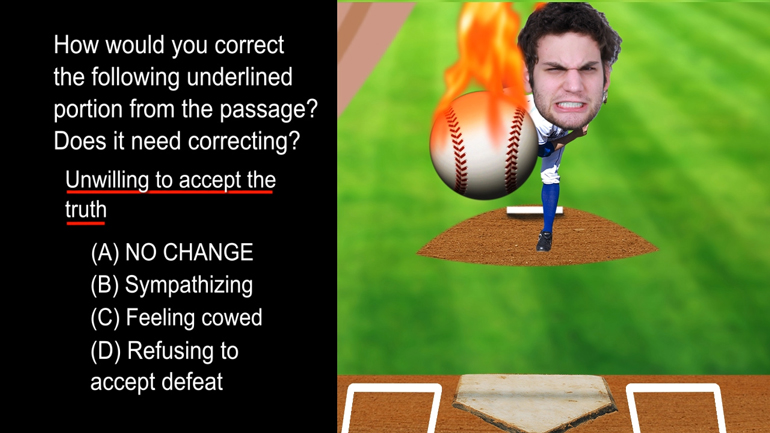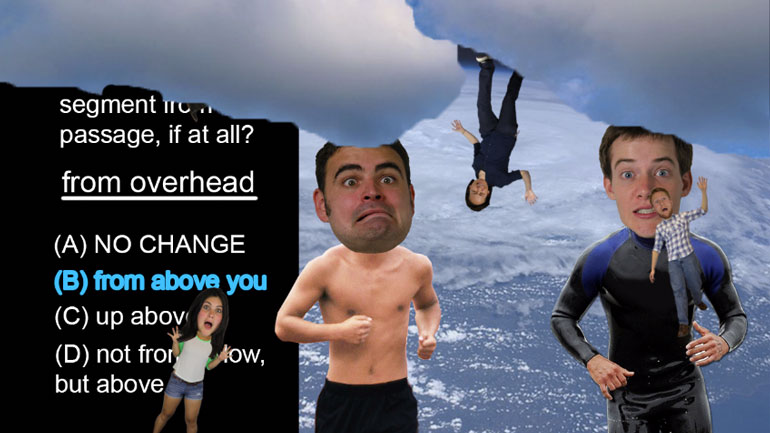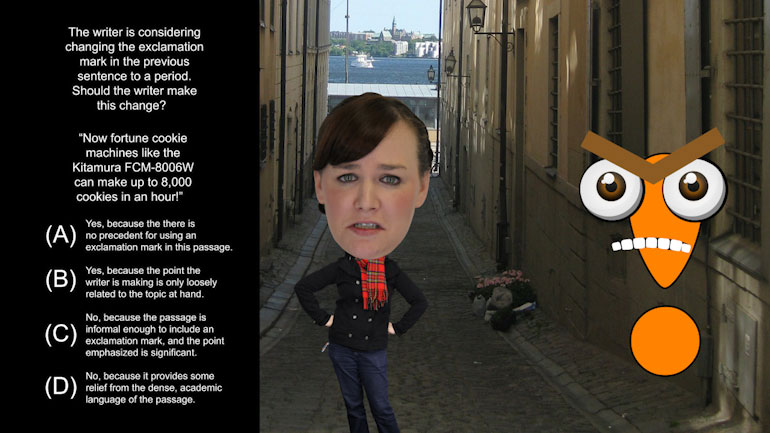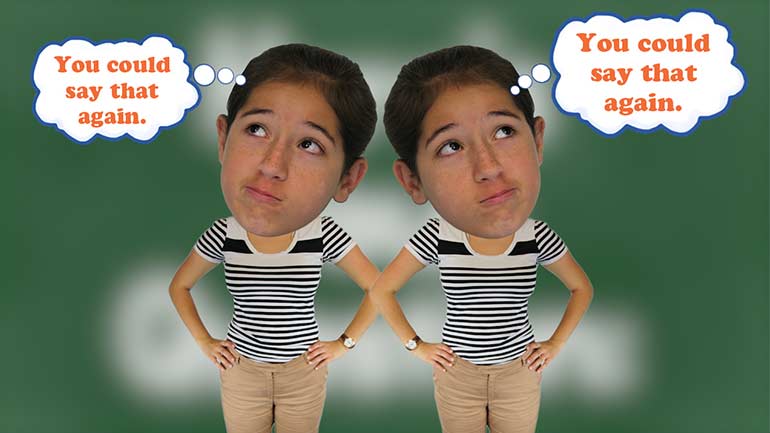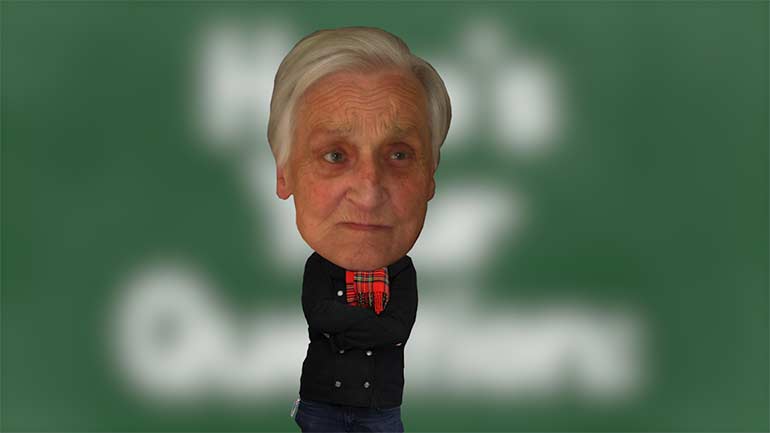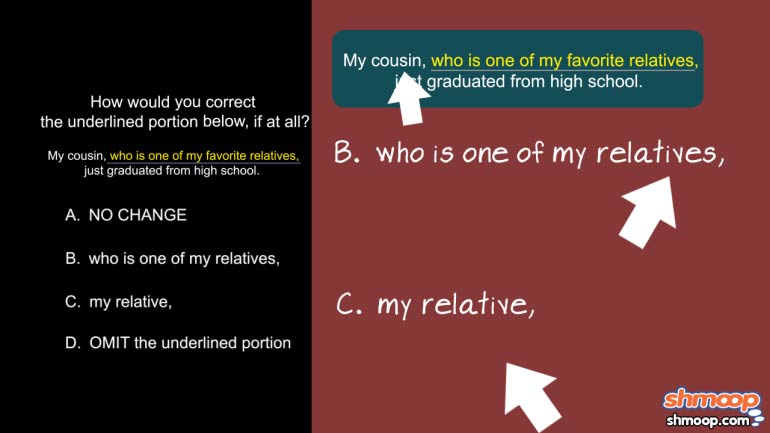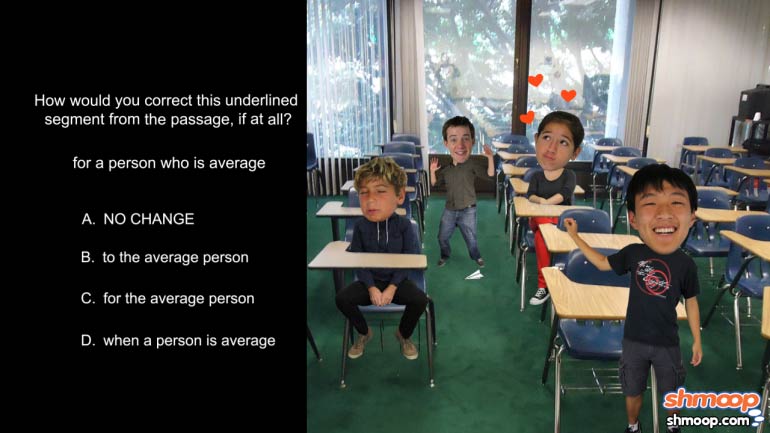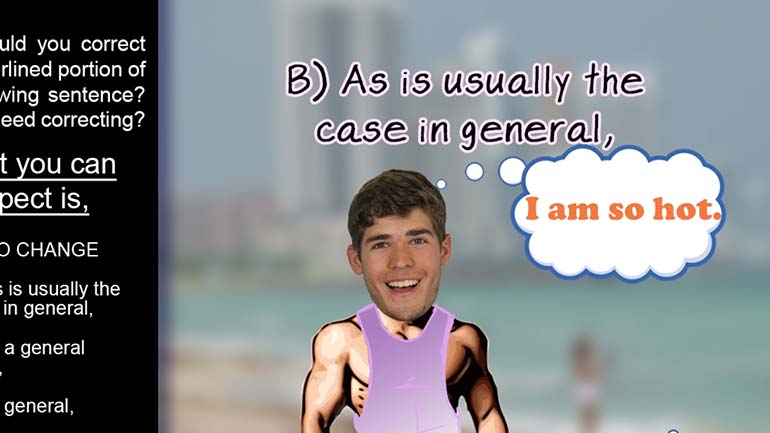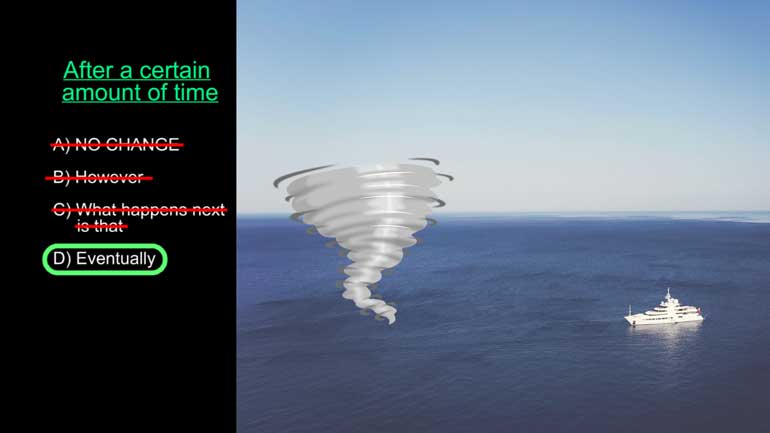ShmoopTube
Where Monty Python meets your 10th grade teacher.
Search Thousands of Shmoop Videos
Rhetorical Skills Videos 50 videos
ACT English: Passage Drill 2, Problem 11. Which of the following sentences would make the most effective transition?
In this ACT English passage drill determine if the writer of the passage may or may not have achieved their proposed goal.
ACT English: Passage Drill Drill 3, Problem 2. What would the paragraph lose if the writer omits the underlined phrase?
ACT English 2.15 Passage Drill 200 Views
Share It!
Description:
In this ACT English passage drill determine if the writer of the passage may or may not have achieved their proposed goal.
Transcript
- 00:03
Here’s your Shmoop du jour, brought to you by articles on the Internet.
- 00:07
And other infallible sources of information.
- 00:11
Check out the following passage and answer the question below.
- 00:23
Suppose the writer intended to write a brief essay about the potential risks of relying
- 00:27
on information from the Internet. Does this essay fulfill the writer's goal?
Full Transcript
- 00:39
This question requires us to have a solid understanding of the article’s general purpose
- 00:43
and content. Good thing we’ve been paying close attention.
- 00:49
(A) is incorrect because there's no indication that the guide provided inaccurate information for all cats.
- 00:55
For example, if the article suggested cleaning cats by dipping them in paint, that would be inaccurate.
- 01:01
And a little twisted.
- 01:03
Choice (C) is incorrect because the writer followed all the directions to a tee.
- 01:07
If the writer had decided to ignore the guide’s suggestion to make the cat feel comfortable,
- 01:12
then the kitty-bathing mishap would’ve been on the writer. Of course, this is not what happened.
- 01:17
And, anyway, we can’t imagine why somebody would think it’s a good idea
- 01:20
to rile up a cat before plunging it into water.
- 01:23
(D) is wrong because the writer's prior knowledge has nothing to do with the necessity of bathing the cat.
- 01:29
Speaking of prior knowledge, why was it such a surprise that the cat flipped
- 01:33
out when the writer already knew it hated baths?
- 01:36
(B) is the correct answer because it best summarizes how information from the Internet
- 01:40
was applied in this particular case. The information wasn’t necessarily bad; it simply didn’t
- 01:46
prepare the author for the cat’s massive breakdown as soon as the water turned on.
- 01:50
Though, again, we can't imagine why that was such a shocker.
Related Videos
ACT English: Punctuation Drill 2, Problem 2. Where should the semi-colon be placed?
ACT English: Punctuation Drill 3, Problem 1. How should this sentence be changed so that it is grammatically correct?
ACT English: Punctuation Drill 3, Problem 2. How should we properly hyphenate the words in this sentence?
ACT English: Punctuation Drill 3, Problem 4. Which choice best formats this list of items?
ACT English: Punctuation Drill 2, Problem 1. Which choice of punctuation best completes the sentence?

